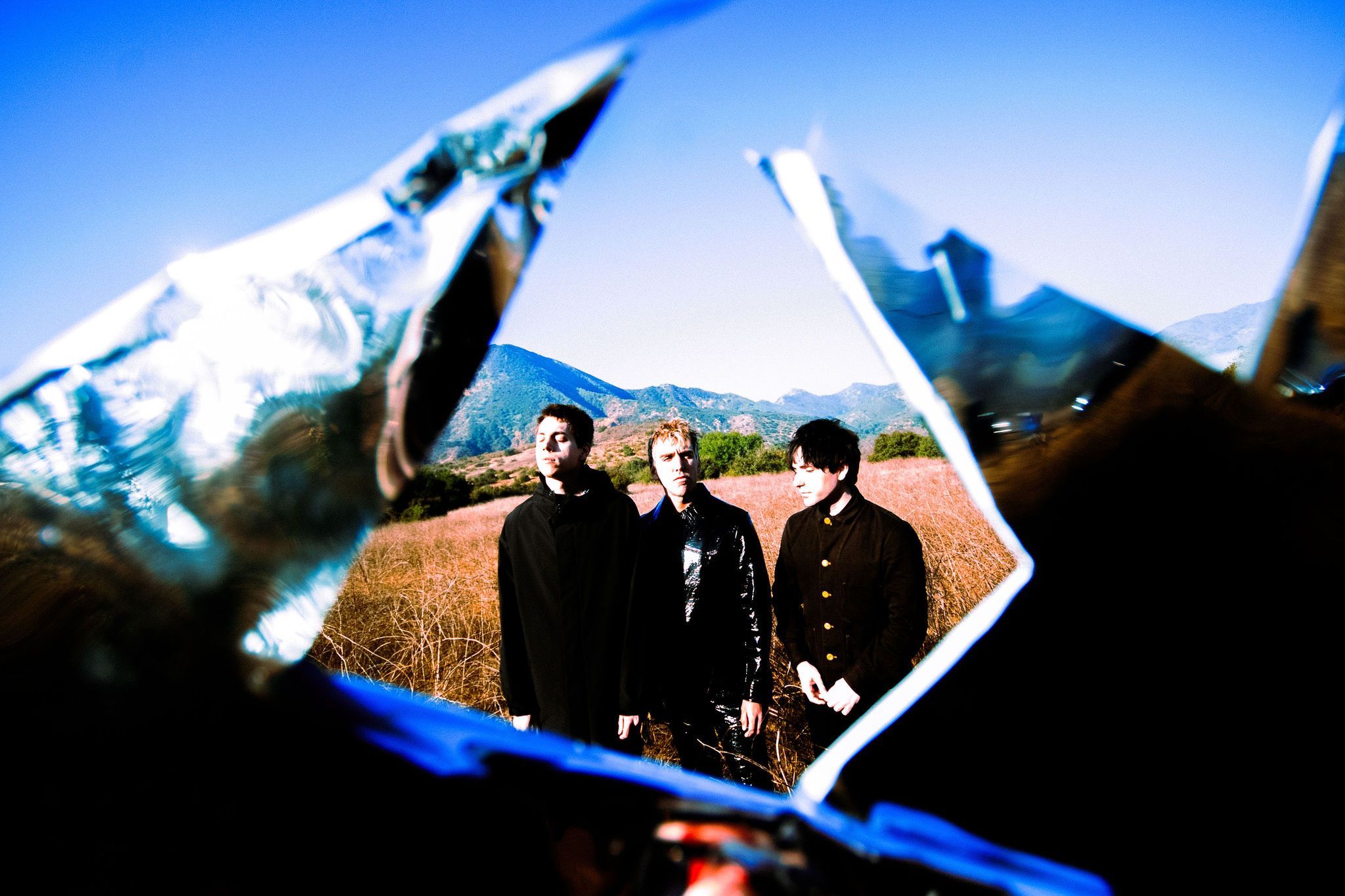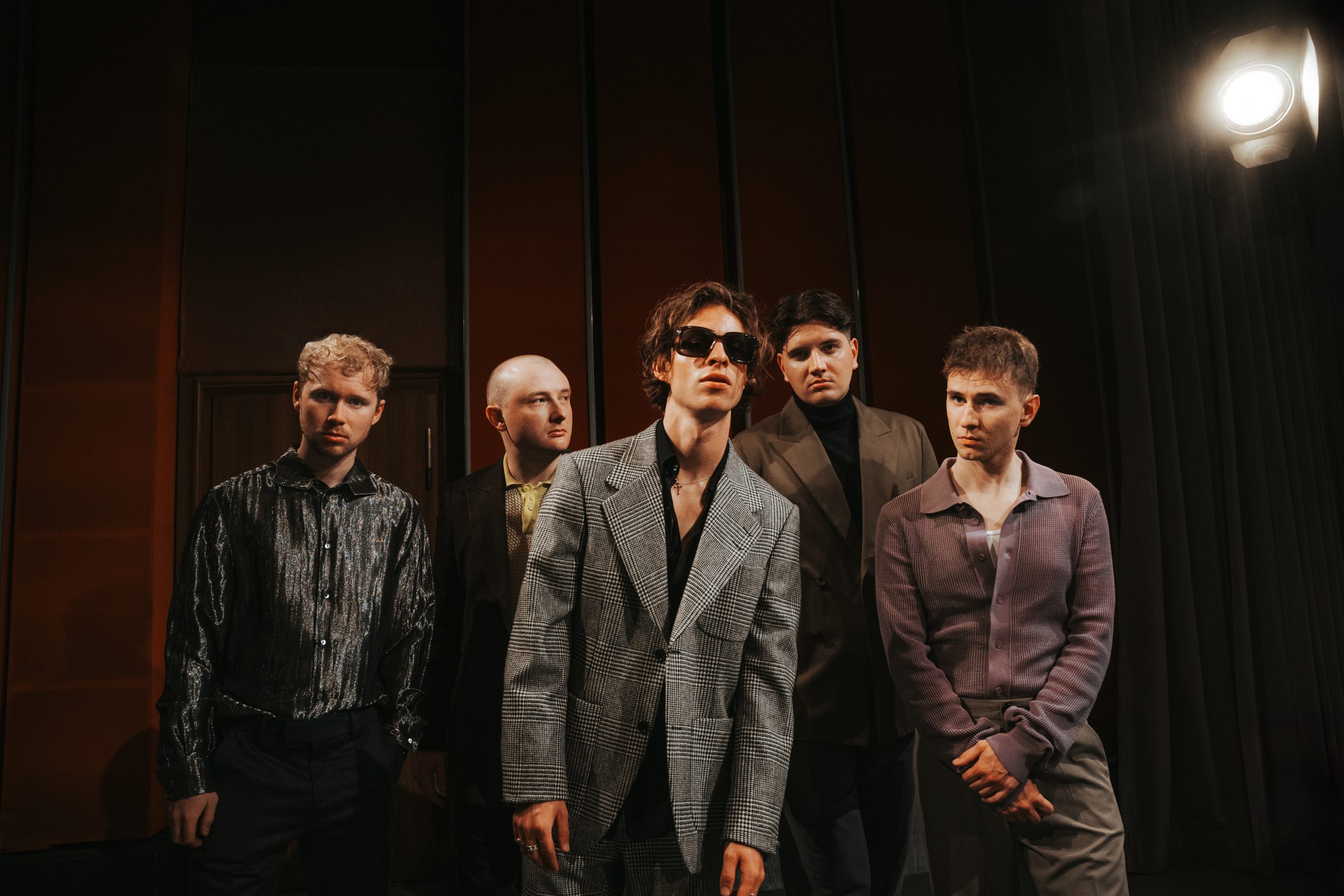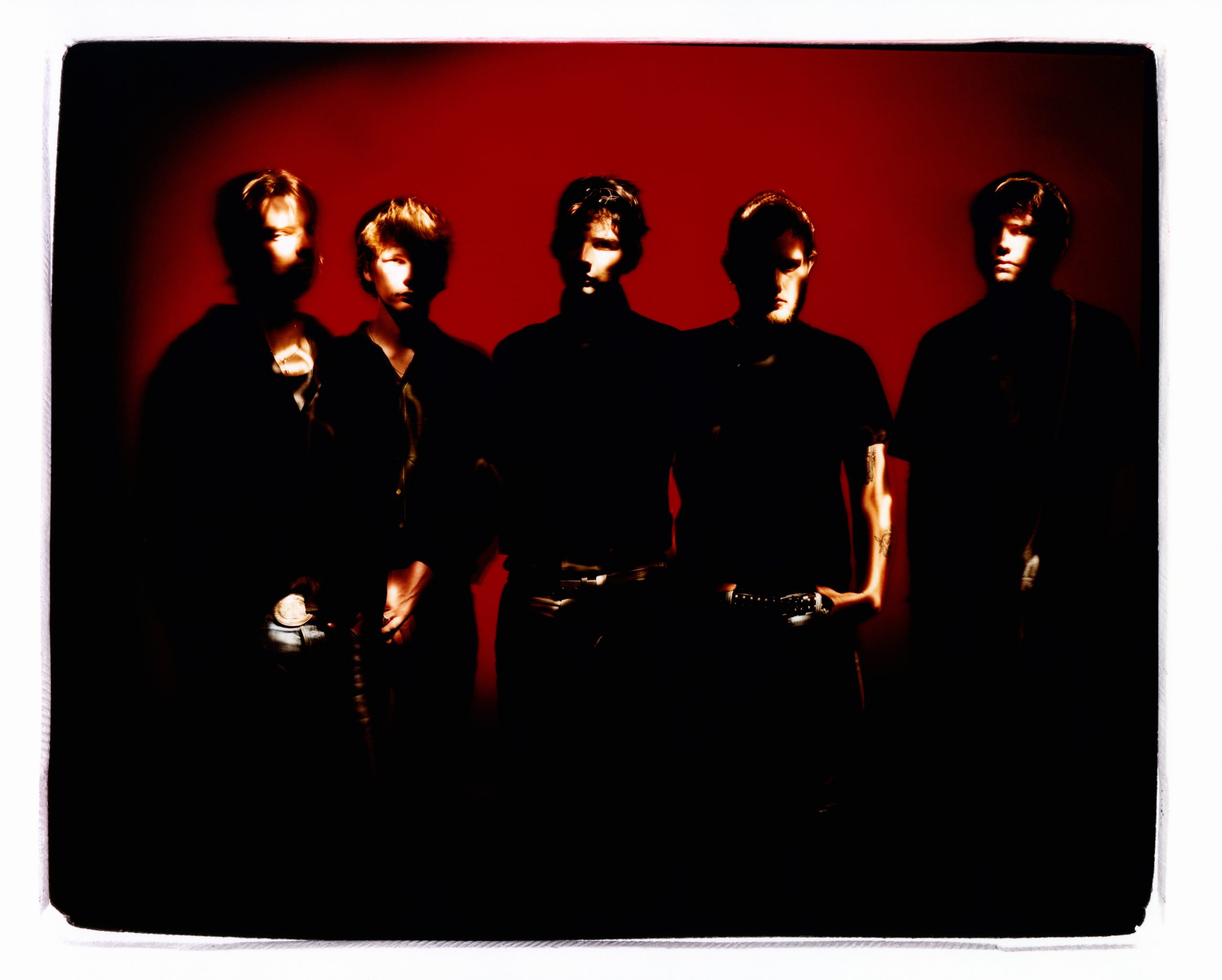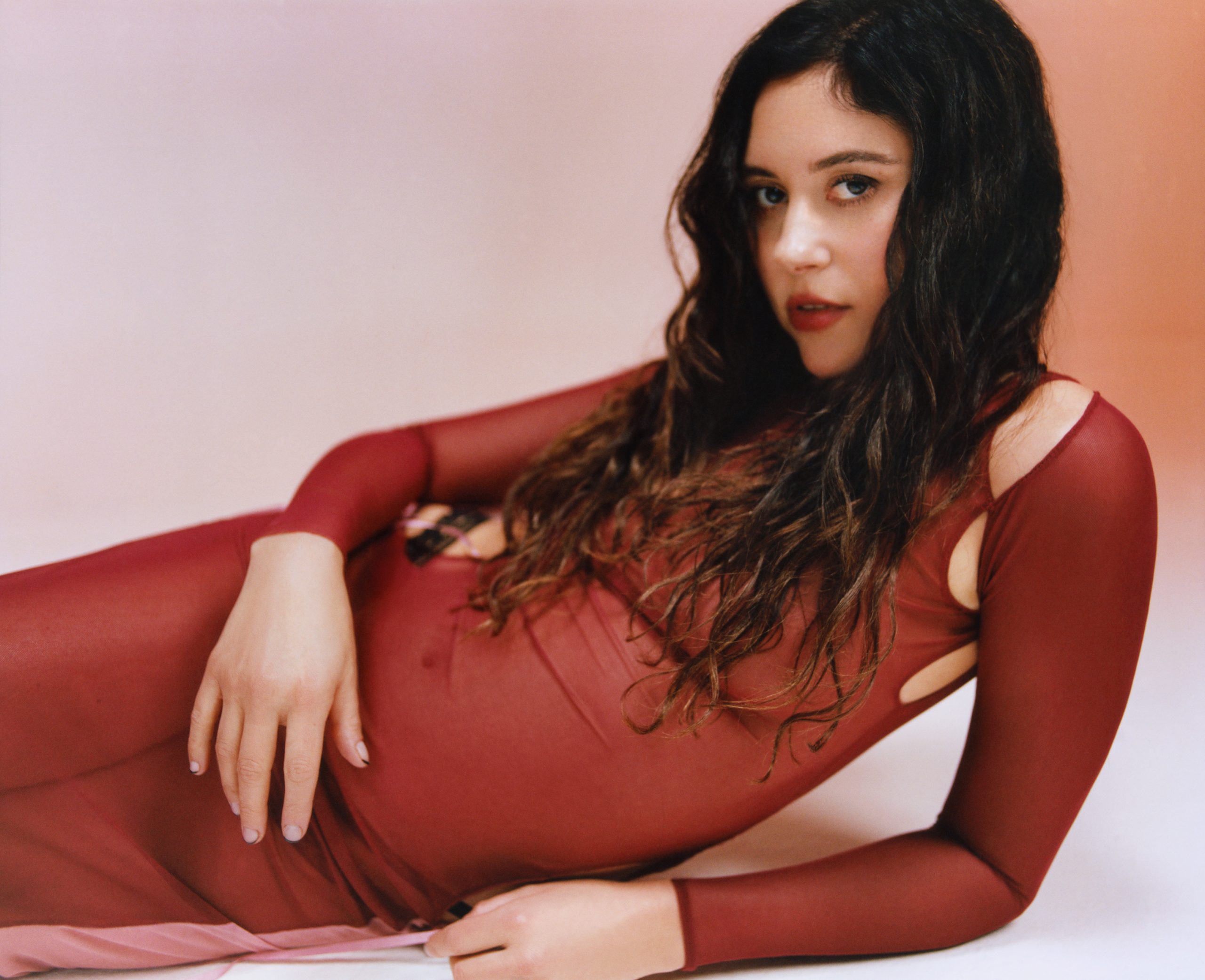There’s a kind of alchemy in the way a song takes shape — the moment when stray chords and half-formed ideas suddenly lock into place, revealing something that feels like it’s always existed. For Bad Suns, that spark is still as electrifying as it was when they first started making music together as teenagers. Making an album, frontman Christo Bowman says, “feels like an endurance sport.” There are moments when you hit a wall, when your mind tells you it’s time to quit, but if you keep pushing, something shifts. That metaphor became the heartbeat of Accelerator, the fifth album from Bad Suns, a band that has spent the better part of sixteen years navigating the unpredictable terrain of making music together.
After the reset of their Infinite Joy EP, which Bowman describes as “us saying, yes, we still want to do this,” Bad Suns approached Accelerator with both urgency and patience. It wasn’t about rushing to prove themselves; it was about rediscovering why they make music in the first place. “At some point, I came to a broader understanding of what I wanted to achieve with this record,” Bowman recalls. That road was filled with moments of frustration, flashes of inspiration, and quiet revelations. Sometimes progress came in the studio; other times, it arrived unexpectedly — on a walk, in the car, or late at night on the couch, guitar in hand. Bowman remembers “Mystery Girl” spilling out in one sitting: “The first place my hands went, the first thing I played, was that opening guitar line. I remember being very surprised by it.” It’s those surprises when instinct and chance collide that fuel Bad Suns’ best work.
But Accelerator isn’t just about chasing songs. It’s about survival, commitment, and growth. At the end of their fourth album cycle, Apocalypse Whenever, the band hit what Bowman calls a fork in the road: evolve or end. They chose the harder path, the one that meant facing the challenges head-on. “Being in a band is harder than any of us probably expected,” he admits, “but it is also incredibly rewarding.” That choice, that refusal to give up, breathes through every track of Accelerator.
1883 Magazine sits down with Bowman of Bad Suns to discuss the new album Accelerator, what he’s learned in the 15 years since the band started, and more.
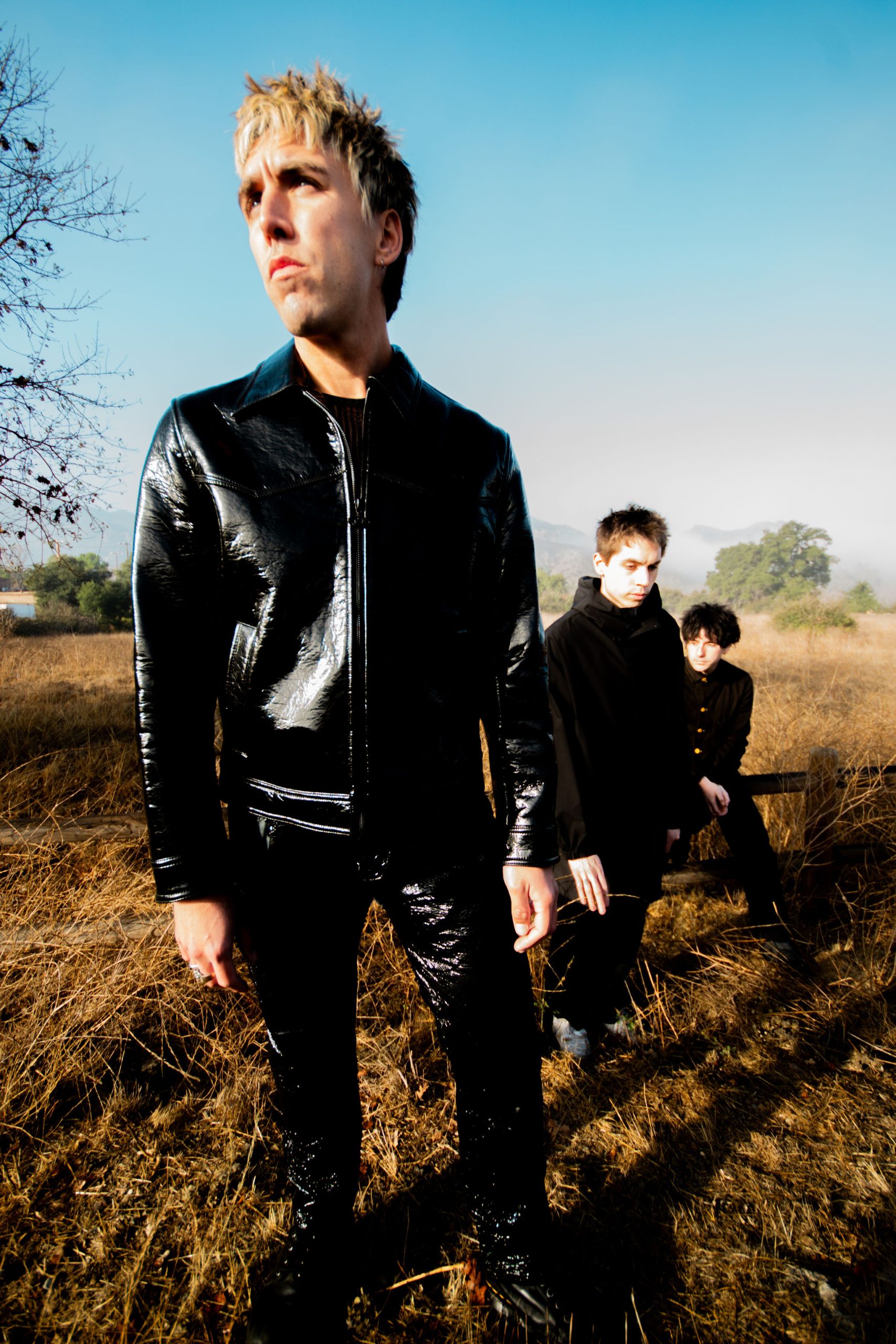
Do you remember how the first spark for Mystery Girl came to you? Was it a melody, a lyric, or maybe even a moment that stuck with you?
Yeah, that song — I have a pretty vivid memory of its initial origin. It was one of those rare songs that kind of appears more or less fully formed all at once. For me, that generally means the music arrives fully formed, and the lyrics come a bit later. That part is more of a process of investigation and self-examination, puzzling things together. But musically, it all came very abruptly and suddenly. I was sitting on my couch at night. I had just watched a music documentary after a really long day, and I remember feeling this kind of pang of inspiration and thinking, I wonder if I could come up with something worthwhile today.
I had been busy helping my friend out on a photoshoot, and it was during the creation of our record. I remember feeling like I had not really gotten anything done for the record that day, and that weighed on me a bit. At the end of the day, I thought, maybe I can just mess around with the guitar and see what happens. It was just an instinct to go pick up the guitar, sit on the couch, and the song completely fell out. The first place my hands went, the first thing I played, was that opening guitar line. I remember being very surprised by it.
I think a lot of what creating music is about is reacting to what you are hearing. When something positively surprises you, it can fuel the spark of inspiration. That leads to singing something on top of it. That is a magical thing, especially in the context of a band where each member has their own instrument. They will invariably do something you would not, and that might surprise you. These moments when you surprise yourself with what is happening all at once — it is like a collaboration happening within one person. That is particularly surprising and exciting, and fun. That is what happened with this song. It all came pouring out.
Then I had the music sitting around for a while. I would think about it and revisit it, and I knew right away this was something special. I’m a big fan of the poet Raymond Carver. I was reading one of his collections called The New Path to the Waterfall, and there is a poem titled Another Mystery. The subject matter is completely separate from the song, but the way he wraps it all up with the phrase “another mystery” stuck in my head. At the time, I was also getting ready to get married. It was summer, and I was listening to a lot of Neil Young’s Harvest Moon and Roy Orbison’s Mystery Girl albums. Having all these elements floating around led me to the idea of loving the title Mystery Girl and viewing love as just another mystery of life. So I wanted to find my way in there and let the story tell itself.
This song also looks back on your teenage years while stepping into fatherhood. How did those two chapters begin to connect as you were writing?
This song does not really have much to do with fatherhood. I think I wrote it before that was even on the table. But I did write it in the weeks leading up to my wedding, so I was reflecting on what love meant to me at that point. My wife Allison and I have been together for as long as the band. We started dating at the beginning of 2012, so we’ve been hand in hand through all of this. This song became an opportunity for me to retrace our steps and go back to those early teenage years when our love story began. It also kind of predates that. It puts me back in the mindset of trying to figure out who I was before that relationship had such a massive impact on my life. It is me revisiting and trying to remember that different person.
With Accelerator, it feels like you are opening a new chapter and reflecting on everything that has brought you here. Was there a turning point when the album’s direction really clicked for you?
Yeah, and I think it was actually a series of turning points. At some point, I came to a broader understanding of what I wanted to achieve with this record. At the same time, I understood that I wouldn’t be able to fully see that vision in advance. So I had to accept that it was going to be a long and mysterious road. As long as I kept this guiding idea in my mind, I knew I would recognize the end of the road once I arrived, even if I didn’t know exactly where I’d turn left or right along the way. That shift in mindset opened my eyes to life as it was happening. It helped me reframe how I looked at everyday moments, allowing small things I might have otherwise missed to creep in and inspire me. Inspiration is everywhere in day-to-day life, especially when you are tackling a full-length album. It takes time, dedication, collaboration, and openness to the unexpected.
After releasing the Infinite Joy EP and doing some touring around it, we came home and really reconnected as a band. That experience gave us our sea legs again. It felt like we had shed our skin and were ready to dive into making this new album with full force. So yes, that is what I would call the turning point.
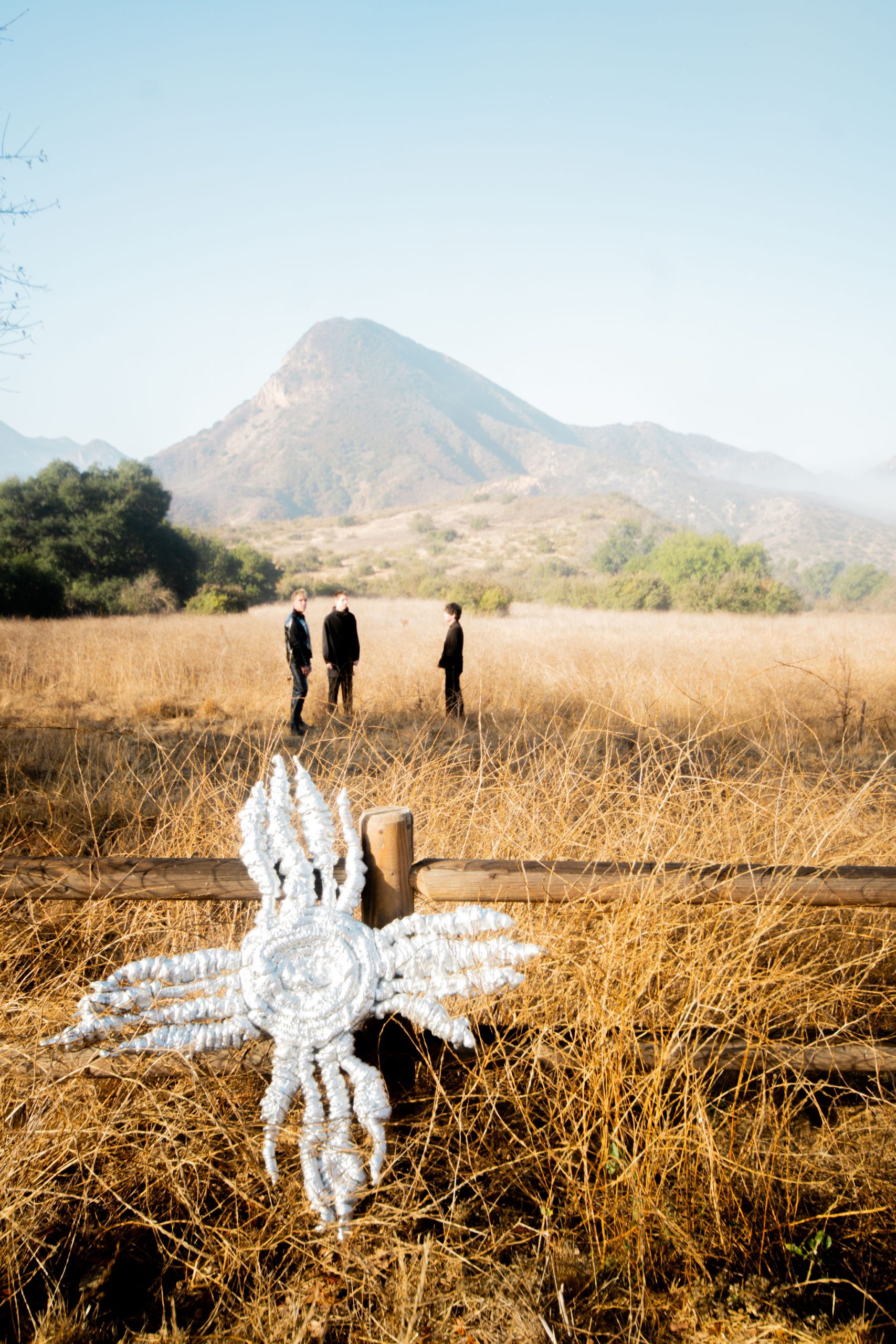
The Infinite Joy EP felt like a bit of a reset. Did that experience shift the way you approached the new album?
I think so. Making an album can be really intense. At the end of the cycle for our fourth album, Apocalypse Whenever, it felt like we had really gone through the ringer. Ten years into being a band, things were starting to shake up. We were at a point where the band could have ended or evolved. That was the fork in the road. Ultimately, the three of us — Miles, Gavin, and I — decided we wanted to keep going. We felt like our work wasn’t finished. There was still more music we wanted to make, still more to discover together.
That decision came through a lot of deep conversations and introspection. Being in a band is harder than any of us probably expected, but it is also incredibly rewarding. Infinite Joy was a reset in that sense. It was us saying, yes, we still want to do this. And we’re going to figure out how to keep doing it in a way that feels true and fresh.
We were really just focused on making it fun. That was where the emphasis was. It wasn’t about putting pressure on ourselves to immediately start working on the next full-length album. It was more like, let’s give ourselves permission to breathe, to try something lighter, something that releases us from that weight. And once we made that decision, the process actually became enjoyable. I found myself excited to go into the studio again. We tried new things, like recording in Atlanta, Georgia, which we’d never done before. Leaving California, stepping out of our comfort zone, it all made the experience fresh. We just made music in a room together, not overthinking it, not chasing anything beyond that moment of creation. It turned out to be a lot of fun, and I still think it’s a great EP. By the end of it, we reached a natural transition point. That moment of, “Okay, we’ve done that. Now it’s time to get serious again,” came pretty organically.
We started thinking about what the next step for the band should be. Because while fun is a huge part of the process, making music that truly reflects your vision and your growth is also serious work. It takes intention, clarity, and love. I think stepping back to have that fun was necessary. It gave us the energy and focus to come back to this album with a renewed sense of purpose. That made it all the more rewarding.
If we describe making Accelerator as climbing a mountain, what was the toughest part of the climb for you, and how did you push through it?
Making an album — and really, life in general — feels like an endurance sport. There are moments where you genuinely think you’ve hit your limit. I run long distances every day just for myself, and there’s always this point where your mind tells you to stop, that you can’t go any further. But if you just keep going, you often surprise yourself. That same principle applied when we were making the album. Sometimes you hit a wall in the creative process. You think, “How are we going to solve this? What do we do now?” And it can feel overwhelming. That’s when I learned to step away.
For me, that might mean getting in the car, picking up food, going for a walk, or just changing what I’m focusing on. Letting my mind breathe. In those moments, solutions would just drift into view without force; cutting a verse, changing a structure, seeing something from a different angle. It was like the mountain was teaching us as we climbed it. And sure, I could list specific challenges we faced, but I think what matters more is that constant reaffirmation we gave each other: that we had what it took to get through it, and we would. That mindset was essential, and it got us to the top.
The album explores change, growth, and looking back. What do you hope listeners take away from these songs?
I never approach music thinking about a message I want to push on someone else. I’m not trying to tell people, “Here’s how I see the world, and you should see it this way too.” That’s not how songs impact me, either. What tends to happen is that on the fourth or fifth listen, a line will suddenly resonate and reflect something in your own life. You hear it, and it feels like someone has captured a moment you’ve lived. That’s the beauty of songwriting. It becomes a mirror.
That’s what I hope this album does for people — that they see themselves in it. It’s dense lyrically. There are a lot of short, loaded lines, a lot of thoughts packed in. I hope some of those lines stick with listeners and make them feel seen or understood in some way. And honestly, I’m more excited to hear what other people take from the songs than I am to explain them myself. When we go on tour, I’m really looking forward to hearing what the songs mean to the people who’ve lived with them. That’s the most special part.
You’ve been playing together since you were teenagers. Looking back now, is there anything about your journey that still surprises you?
Yeah, it’s kind of incredible when I think about it. We started playing together in the summer of 2009. That’s sixteen years. Bad Suns as we know it today really kicked off around 2012, but before that, it was just the three of us — Gavin, Miles, and me — learning how to make music together, writing songs, growing up. And now, looking back, what surprises me isn’t so much what we’ve done as a band, but how much life has changed around us. People I went to high school with have had five different jobs, lived in five different cities, and gone through a dozen relationships. Meanwhile, my life feels like this one long, continuous thread. I’ve been in the same band. I’ve been with the same person, now my wife. And I feel so much gratitude for that. There’s something peaceful about it, like I found the thing I was meant to be doing really early in life. That’s rare, and I don’t take it for granted.
Making this album felt like a full-circle moment. I got to really stop and appreciate the fact that after all this time, we’re still here doing what we love. We still wake up and pour everything we have into this, and it still feels true. It’s hard work, but it doesn’t feel like work in the traditional sense. There’s no cynicism in what we do, no pretending. What we put out into the world is genuinely who we are and what we believe in. And that’s something I’m proud of.
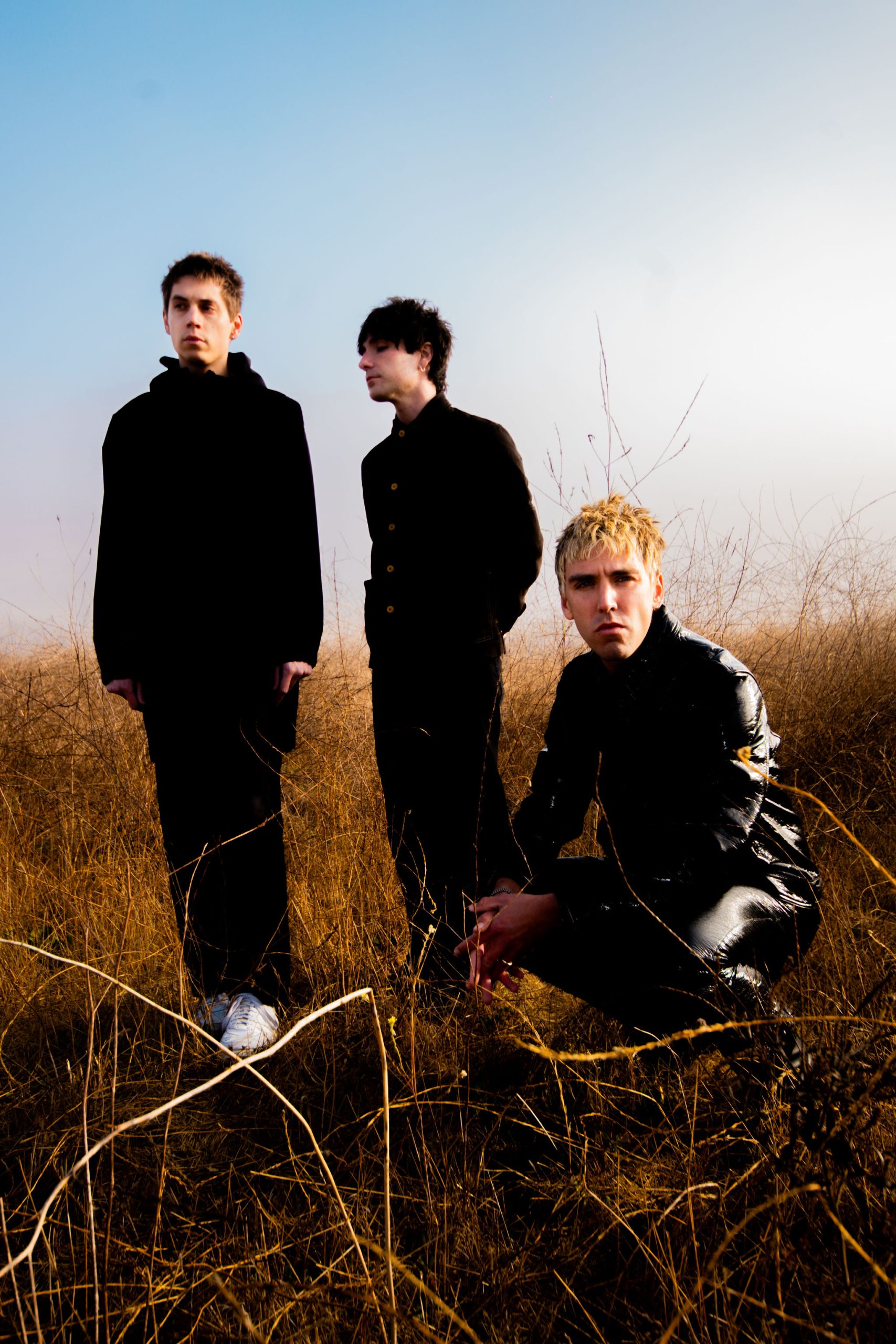
Accelerator is out now.
Interview Alper Kurtel
Photography Sarah Eiseman

